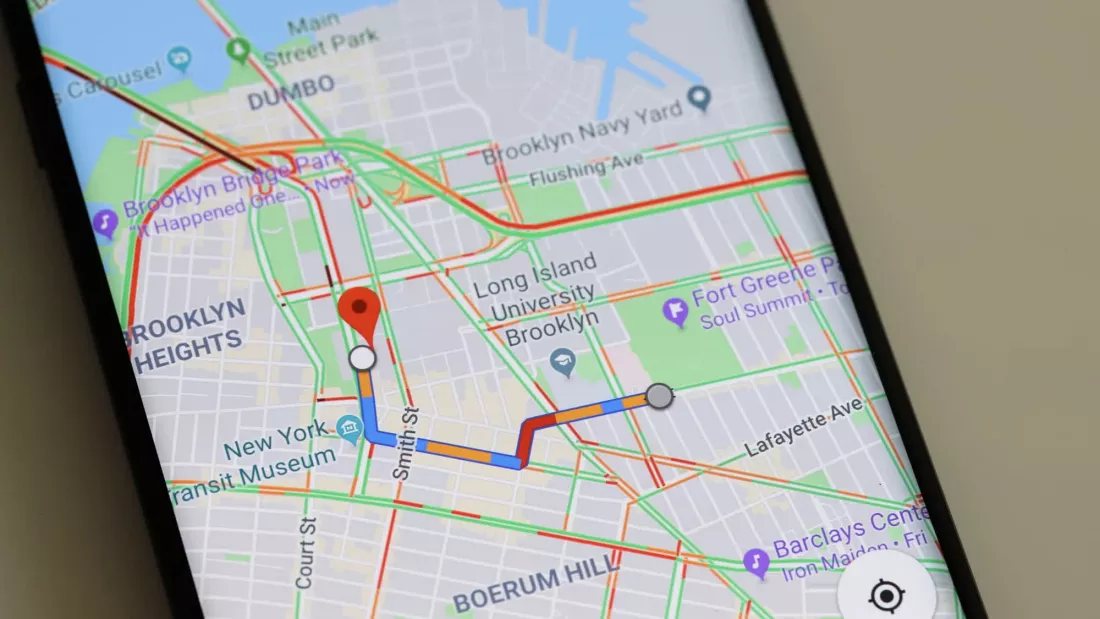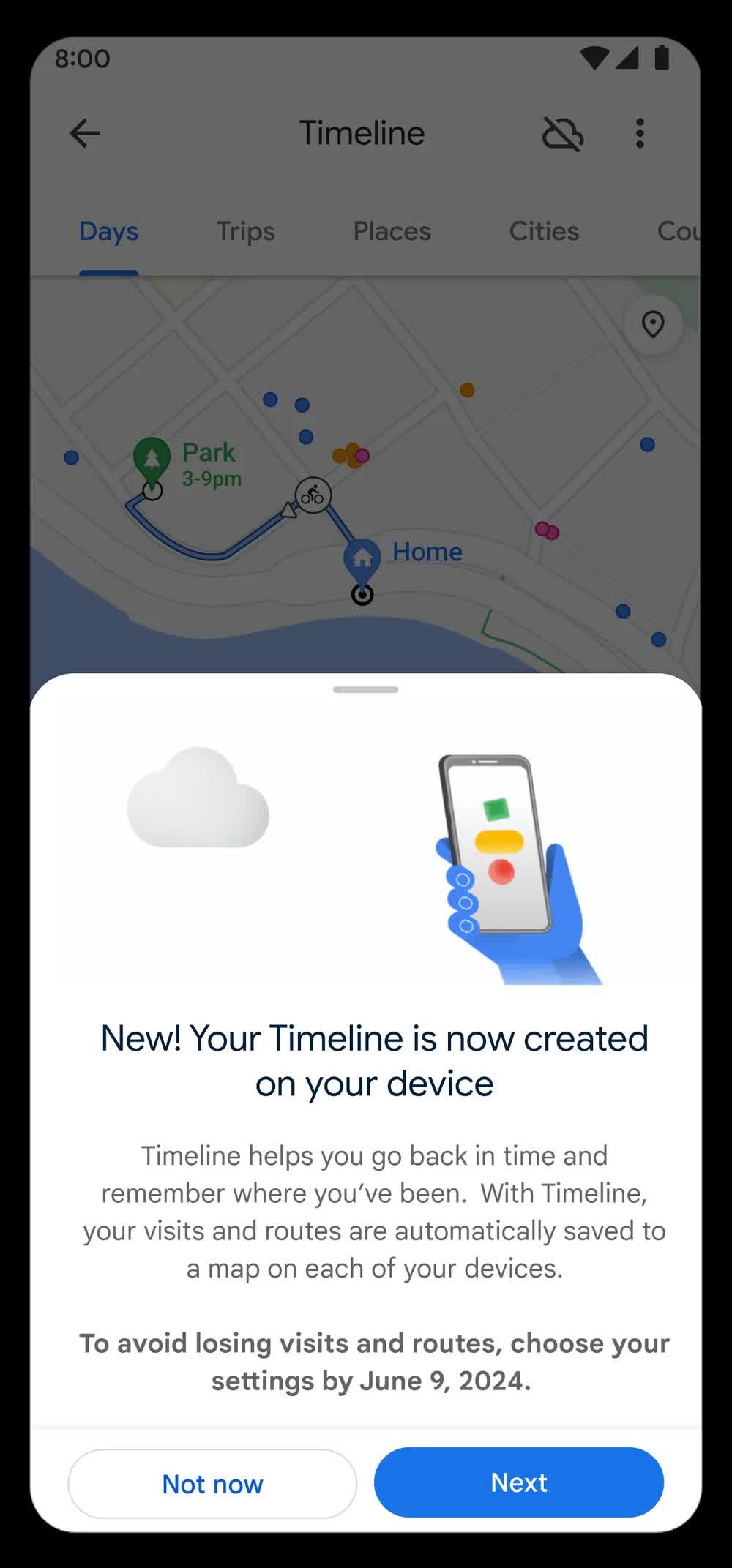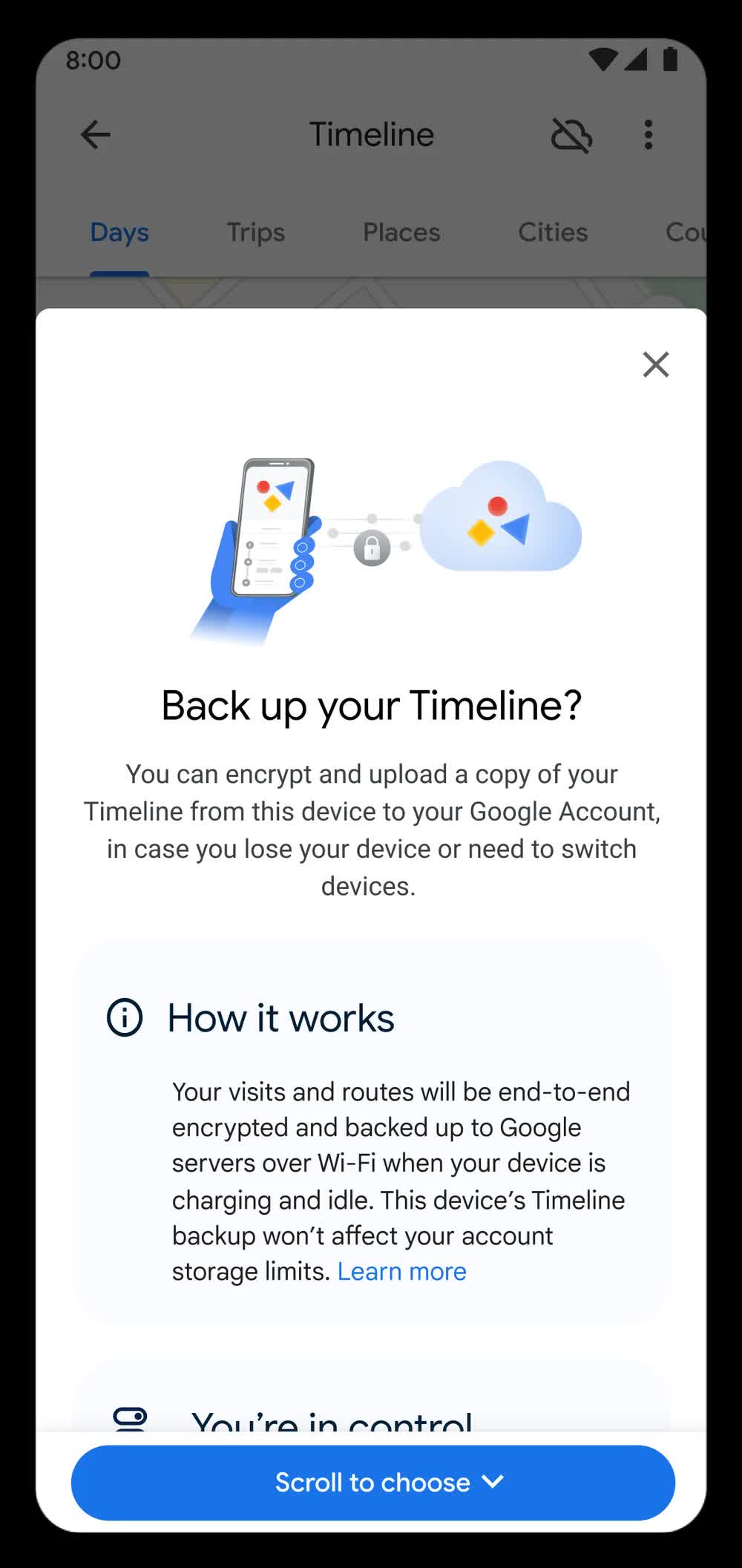Why it matters: Allowing companies access to your private information has been a contentious issue since the rise of the internet. It's especially concerning when that information is related to location data, which is partly why Google has changed its policy regarding access to users' location histories in Maps. The move means it can no longer respond to warrant-enforced requests from law enforcement about who was in the vicinity of a crime.

Google says that its update to Google Maps will give users more control over their location data. The navigation app's Location History feature, which is turned off by default, stores your activity in the cloud, showing where you've recently been. The idea is to help people remember the places they've visited and how they got there.

Following the update, users' Timeline data will be stored on the device itself rather than the cloud, though there will be an option to update it to the cloud as a backup if you want. This data will be encrypted, so nobody, not even Google, will be able to see it. Additionally, Google will only hold the data for three months instead of the previous 18 months, unless you specify otherwise.
One big implication of this change is that by saving location data directly onto a person's device, Google will not be able to comply with law enforcement requests demanding user location information.
"Your location information is personal," said Marlo McGriff, director of product for Google Maps. "We're committed to keeping it safe, private and in your control."

Jennifer Lynch, the general counsel at the Electronic Frontier Foundation (EFF), told Bloomberg, "We've been calling on Google to make these changes for years, and I think it's fantastic for Google users, because it means that they can take advantage of features like location history without having to fear that the police will get access to all of that data."
In September, a Bloomberg investigation found that police in the US were increasingly using warrants to obtain location and search data from Google. This included non-violent cases and also involved people who had nothing to do with the crimes.
October brought news that the Colorado Supreme Court had upheld a search warrant that involved the examination of some Google users' keyword history to identify suspects in a fatal 2020 arson fire. The decision drew criticism from privacy advocates, including the EFF, which wants a full ban on keyword warrants.
https://www.techspot.com/news/101222-google-latest-maps-update-shields-user-location-data.html